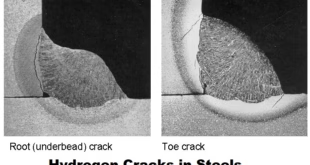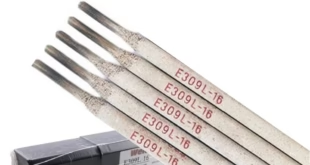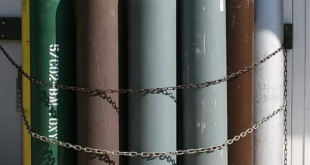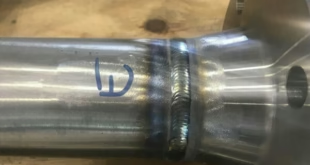AWS D1.1 Certification
Introduction to AWS D1.1 Certification
In the world of welding, certifications are more than just pieces of paper—they are badges of honor that signify a welder’s skill, dedication, and professionalism. One of the most respected certifications in this field is the AWS D1.1 Certification. Whether you’re a seasoned welder looking to advance your career or a newcomer wanting to establish your credentials, understanding the intricacies of this certification can be a game-changer. Let’s dive deeper into what AWS D1.1 Certification entails, its benefits, and how you can achieve it.
What is AWS D1.1 Certification?
The AWS D1.1 Certification is a prestigious credential offered by the American Welding Society (AWS). It is specifically designed for those involved in structural welding, covering the requirements for welding steel structures. This certification ensures that welders possess the necessary skills and knowledge to perform high-quality welding tasks in various industrial settings.

Definition and Purpose
The AWS D1.1 Certification serves as a standard for welding practices, ensuring that welders adhere to industry best practices and safety standards. It outlines the criteria for weld quality, inspection, and qualification, aiming to enhance the reliability and integrity of welded structures. Essentially, it sets the bar for what is expected in the welding industry, ensuring consistency and quality across the board.
History and Development
The AWS D1.1 standard has a rich history, evolving over the decades to incorporate advancements in welding technology and techniques. Initially developed to standardize welding practices, it has grown to become the benchmark for structural welding, recognized worldwide for its comprehensive guidelines and rigorous testing procedures. Over time, the AWS D1.1 has been updated to reflect new welding technologies, materials, and industry needs, making it a living document that grows with the industry.
Key Components of AWS D1.1 Certification
To fully appreciate the value of AWS D1.1 Certification, it’s essential to understand its key components. These include welding procedures, welder qualifications, and welding materials, all of which play a crucial role in ensuring the quality and safety of welded structures.
Welding Procedures
Welding procedures are detailed instructions outlining the welding process, including parameters such as voltage, current, speed, and technique. These procedures are meticulously tested and approved to ensure they produce consistent, high-quality welds. Each procedure specification (WPS) must meet the standards set forth by AWS, and they serve as a blueprint for welders to follow, ensuring uniformity and quality control in the welding process.
Welder Qualifications
Welder qualifications involve testing individual welders to verify their ability to produce welds that meet the required standards. This typically includes practical tests where welders must demonstrate their skills by creating test welds that are then inspected for quality. The qualification process ensures that welders have the hands-on skills and theoretical knowledge to perform their tasks effectively. It’s not just about passing a test but proving that one can consistently produce high-quality welds in real-world conditions.
Welding Materials
The AWS D1.1 Certification also covers the types of materials used in welding. This includes specifications for steel grades, filler materials, and consumables, ensuring that the right materials are used for specific applications to achieve optimal results. Using the correct materials is crucial for the integrity and durability of welded structures, and AWS D1.1 provides detailed guidelines to help welders and engineers make the right choices.
Benefits of AWS D1.1 Certification
Obtaining the AWS D1.1 Certification can open numerous doors for welders, providing a range of professional and personal benefits.
Career Advancement
One of the most significant advantages of AWS D1.1 Certification is the potential for career advancement. Certified welders are often preferred by employers for their proven skills and knowledge, leading to better job opportunities and higher salaries. In a competitive job market, having this certification can set you apart, showing that you have met rigorous industry standards and are committed to your craft.
Industry Recognition
Being AWS D1.1 certified sets welders apart from their peers, earning them recognition within the industry. This certification acts as a testament to a welder’s commitment to excellence and adherence to industry standards. It signals to employers, clients, and colleagues that you have the expertise to handle complex welding tasks and ensure the safety and quality of your work.
Safety and Quality Assurance
The AWS D1.1 Certification emphasizes safety and quality, ensuring that certified welders are capable of producing reliable, defect-free welds. This not only protects the integrity of structures but also enhances overall workplace safety. In industries where the quality of welds can have significant safety implications, having certified welders is crucial for minimizing risks and ensuring compliance with safety regulations.
Eligibility and Requirements
Before pursuing AWS D1.1 Certification, it’s important to understand the eligibility criteria and requirements.
Who Can Apply?
The AWS D1.1 Certification is open to anyone with a background in welding, although it is particularly suited for those with experience in structural welding. Candidates typically include welders, welding inspectors, and welding supervisors. While anyone can apply, having a solid foundation in welding principles and techniques is beneficial for passing the certification exams.
Prerequisites and Experience Needed
While there are no strict prerequisites, having prior welding experience is highly beneficial. Many candidates have completed welding training programs or apprenticeships, which provide the foundational skills needed to succeed in the certification process. Experience in structural welding, familiarity with welding codes and standards, and hands-on practice are all valuable assets when preparing for AWS D1.1 Certification.
Preparation for the AWS D1.1 Certification Exam
Preparing for the AWS D1.1 Certification exam requires dedication and access to the right resources. Here’s how you can set yourself up for success.
Study Materials and Resources
There are numerous study materials available, including textbooks, online courses, and practice exams. The AWS website offers official resources that are invaluable for understanding the exam content and structure. Utilizing these materials can help you familiarize yourself with the types of questions and topics covered in the exam, giving you a solid foundation to build upon.
Training Programs and Workshops
Attending training programs and workshops can provide hands-on experience and in-depth knowledge. These programs often cover essential topics such as welding techniques, safety practices, and inspection procedures. Instructors in these programs are typically experienced professionals who can offer valuable insights and practical tips to help you succeed.
Tips for Success
Success in the AWS D1.1 Certification exam comes down to thorough preparation and practice. Focus on mastering the core concepts, practice regularly, and don’t hesitate to seek help from experienced welders or instructors. Joining study groups, taking practice tests, and consistently reviewing materials can help reinforce your knowledge and build your confidence.
The AWS D1.1 Certification Exam Process
Understanding the exam process is crucial to effectively prepare and perform well.
Exam Format and Structure
The AWS D1.1 Certification exam typically consists of a written test and a practical test. The written test covers theoretical knowledge, while the practical test assesses your welding skills through hands-on tasks. Knowing the format and structure of the exam can help you prepare more effectively, allowing you to focus on areas where you need the most practice.
Types of Questions
The written test includes multiple-choice and true/false questions that test your understanding of welding principles, procedures, and safety standards. The practical test requires you to produce welds that meet specific criteria. Familiarizing yourself with the types of questions and practicing similar problems can help you feel more comfortable and prepared on exam day.
Scoring and Results
Both the written and practical tests are scored separately. You must achieve a passing score in both sections to obtain certification. Results are usually provided within a few weeks of completing the exam. Understanding the scoring criteria and focusing on areas where you can earn the most points can help you maximize your chances of passing.
Maintaining and Renewing AWS D1.1 Certification
Certification is not a one-time achievement; maintaining and renewing it is essential to stay current with industry standards.
Certification Validity Period
The AWS D1.1 Certification is typically valid for three years. After this period, you must renew your certification to continue practicing as a certified welder. Keeping track of your certification’s validity and planning for renewal in advance can help you avoid lapses and ensure continuous certification.
Renewal Process
The renewal process involves submitting documentation of your continued work in the welding field and, in some cases, passing a renewal exam. This ensures that you remain proficient and up-to-date with the latest practices. Staying active in the industry and continually honing your skills are key to maintaining your certification.
Continuing Education Requirements
To maintain your certification, you may need to complete continuing education courses. These courses keep you informed about new techniques, safety protocols, and industry developments. Engaging in ongoing education not only helps you maintain your certification but also enhances your skills and knowledge, making you a more valuable asset to employers.
Common Challenges and How to Overcome Them
Pursuing AWS D1.1 Certification can be challenging, but understanding common obstacles and strategies to overcome them can help.
Technical Difficulties
One of the biggest challenges is mastering the technical aspects of welding. Continuous practice and seeking guidance from experienced professionals can help you overcome these difficulties. Don’t hesitate to ask for help or clarification on difficult topics—mentorship and peer support can be incredibly valuable.
Time Management
Balancing study time with work and personal commitments can be tough. Creating a study schedule and sticking to it can ensure you allocate sufficient time for preparation. Breaking down your study sessions into manageable chunks and setting specific goals can help you stay on track without feeling overwhelmed.
Stress and Anxiety
The pressure of passing the certification exam can lead to stress and anxiety. Practicing relaxation techniques and staying positive can help manage these feelings and improve your performance. Remember to take breaks, maintain a healthy lifestyle, and keep a positive mindset to help manage stress effectively.
Conclusion
The AWS D1.1 Certification is a valuable credential for anyone in the welding industry, offering numerous benefits such as career advancement, industry recognition, and a commitment to safety and quality. By understanding the certification process, preparing thoroughly, and overcoming common challenges, you can achieve this prestigious certification and enhance your professional standing. Pursuing AWS D1.1 Certification is not just about passing an exam—it’s about committing to excellence and continuous improvement in your welding career.
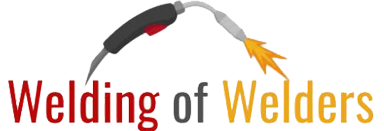 Welding of Welders All about Welding and Welders
Welding of Welders All about Welding and Welders
